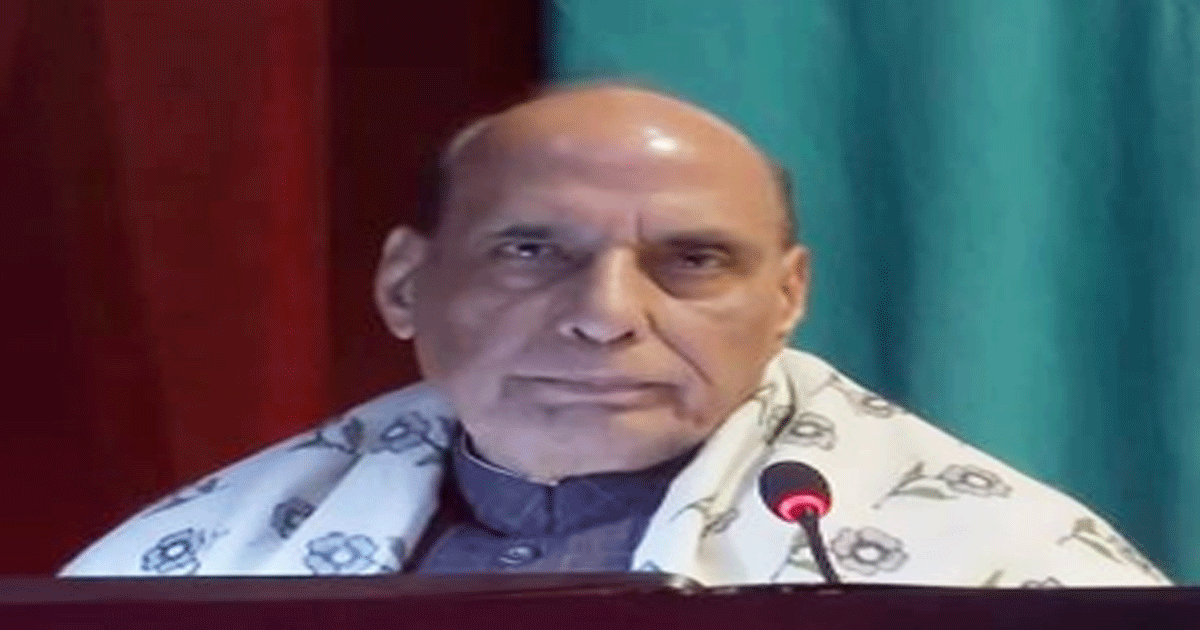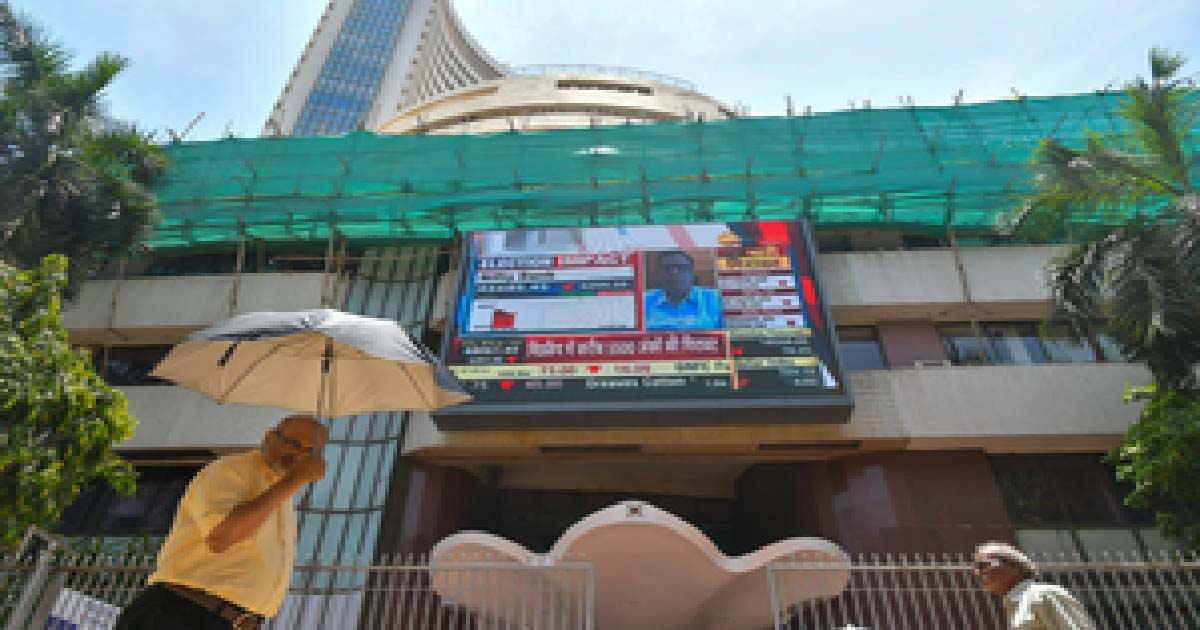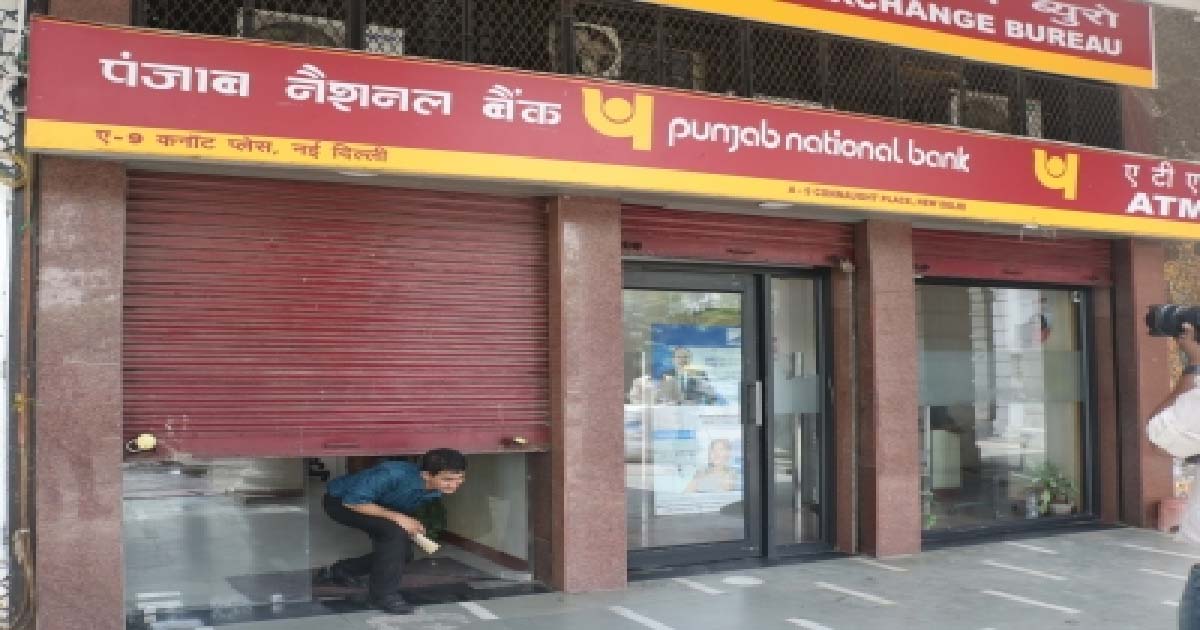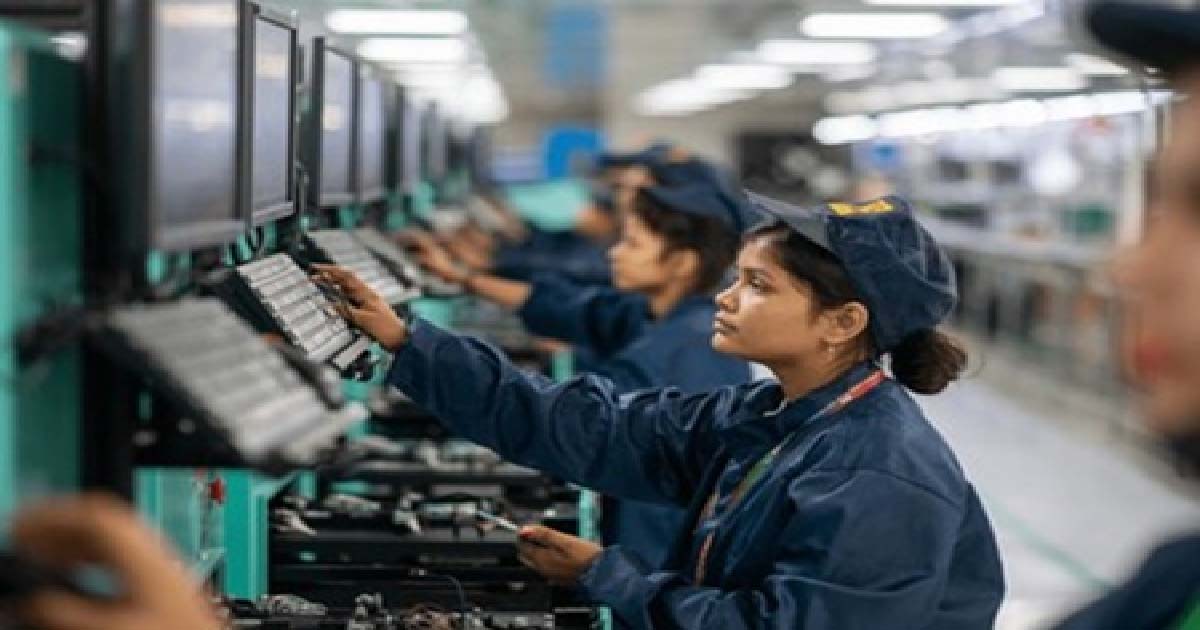Business
India’s defence exports jumped from Rs 2,000 to Rs 21,000 crore in 10 years: Rajanth Singh

Mhow (Madhya Pradesh), Dec 31: Defence Minister Rajnath Singh said that India’s defence exports have surpassed a record level of Rs 21,000 crore from a mere Rs 2,000 crore a decade ago.
Addressing officers at the Army War College (AWC) here on Monday, he said the government has set a Rs 50,000 crore target for defence exports crore by 2029.
He highlighted the radical changes in warfare with unconventional methods like information warfare, Artificial Intelligence (AI)-based warfare, proxy warfare, electromagnetic warfare, space warfare, and cyber-attacks presenting a big challenge.
He stressed the need for the military to be well-trained and equipped to fight off such attacks and praised the training centres in Mhow for their valuable contribution.
Defence Minister Singh commended the training centres for constantly improving their training curriculum as per changing times, and striving to make the personnel fighting fit to take up every kind of challenge.
He urged the officers to explore the possibility of promoting integration through areas such as weapons training in Infantry School; AI and communication technology in the Military College of Telecommunication Engineering (MCTE), and leadership – junior and senior command in AWC.
He further stated that the Modi government is committed to strengthening integration and jointness among the three defence services.
“In the times to come, the armed forces will be able to face challenges together in a better and more efficient way,” the defence minister said.
He pointed out that some officers would work as defence attaches in the future, and they should strive to secure national interests at the global level.
“When you take up this post of defence attaches, you should imbibe the government’s vision of ‘Aatmanirbhar Bharat’. Only through self-reliance can India strengthen its defence capabilities and gain more respect on the world stage,” he explained.
Defence Minister Singh said the government is committed to making India one of the strongest economic and military powers in the world.
“Economic prosperity is possible only when full attention is paid to security. Similarly, the security system will be robust only when the economy is strong. Both complement each other,” he observed.
Defence Minister Singh hailed the role of armed forces in securing the borders and being the first responders during natural disasters.
He was briefed by AWC commandant Lt Gen HS Sahi on the role and significance of the institute in training and empowering military leaders for warfighting across the spectrum of conflict.
The defence minister was also briefed on the significant steps in training methodology through jointness in multi-domain operations, infusion of technology in training curriculum and exchange programmes being undertaken with academia, universities and industries along with training of CAPF officers, a release stated.
He was also apprised about the global footprints of the institute achieved through training officers from friendly countries and contributing immensely towards military diplomacy.
The defence minister laid a wreath and paid homage to brave-hearts at the Infantry Memorial.
Chief of the Army Staff General Upendra Dwivedi and other senior officials of the Army were present on the occasion.
Business
Sensex, Nifty trade flat amid mixed global cues

Mumbai, Dec 29: Indian benchmark indices traded flat with a mild positive bias early on Monday, tracking mixed global cues and subdued year-end participation.
As of 9.30 am, Sensex moved up 40 points, or 0.04 per cent to 85,081 and Nifty gained 14 points, or 0.05 per cent to 26,057.
Main broad-cap indices performed in line with benchmark indices, with the Nifty Midcap 100 advanced 0.14 per cent, while the Nifty Smallcap 100 added 0.18 per cent.
Tech Mahindra, Tata Steel and NTPC were among the major gainers in the Nifty Pack, while losers included Bajaj Finserv, Axis Bank, Bajaj Finance and Tata Consumer.
Among sectoral gainers, the Nifty Metal index was the top performer, rising 1.11 per cent, followed by Nifty Auto and Nifty Realty, which gained 0.26 per cent and 0.25 per cent, respectively.
According to analysts, immediate support is placed at 25,850–25,900 zone, while 26,150–26,200 remains a crucial resistance band. Stable crude prices and a relatively steady rupee continue to offer underlying support, preventing sharp downside.
They further said that underperformance of India compared to most developed and emerging markets in 2025 is set to change in 2026 as Indian macros are in the ‘Goldilocks’ zone, with robust economic growth and recovery in earnings from Q3 FY26.
However, these factors are not enough to spark a rally soon, market watchers said. The market needs a US-India trade deal with positive surprises for India to rebound. A consolidation phase is likely in the near term in the absence of such surprises, they added.
Asia-Pacific markets traded mixed in the morning session, as investors kicked off the final trading week of the year.
In Asian markets, China’s Shanghai index advanced 0.31 per cent, and Shenzhen edged up 0.03 per cent, Japan’s Nikkei lost 0.31 per cent, while Hong Kong’s Hang Seng Index gained 0.39 per cent. South Korea’s Kospi added 1.52 per cent.
The US markets ended in the red zone on the last trading day, as Nasdaq lost 0.09 per cent, the S&P 500 eased 0.03 per cent, and the Dow moved down 0.04 per cent.
On December 26, foreign institutional investors (FIIs) sold equities worth Rs 317 crore, while domestic institutional investors (DIIs) were net buyers of equities worth Rs 1,772 crore.
Business
PNB declares Rs 2,434 crore alleged loan fraud against former promoters of Srei firms

New Delhi, Dec 27: Punjab National Bank (PNB) has declared a Rs 2,434 crore alleged loan fraud by the former promoters of Srei Equipment Finance and Srei Infrastructure Finance.
In a late evening exchange filing, the state-run PNB said that “Pursuant to the applicable provisions of SEBI (LODFR) Regulations, 2015 and the Bank’s Policy for determining materiality of events/information required to be reported to the Stock Exchanges, it is hereby informed that the bank has reported borrowal fraud to RBI against the erstwhile promoters of Srei Equipment Finance and Srei Infrastructure Finance”.
PNB said that of the total fraudulent borrowings, Rs 1,240.94 crore is related to Srei Equipment Finance and the remaining Rs 1,193.06 crore is related to Srei Infrastructure Finance.
The public sector lender also said it has 100 per cent provisions for these loans. The bank said the declaration of these two accounts as frauds is based on a forensic audit, which pointed to irregularities such as loans to connected parties and potential evergreening of loans.
However, Srei group has challenged the forensic audit report as the basis for the fraud classification, noting the matter is subjudice.
Other banks such as Punjab & Sind Bank, Bank of Baroda, and Union Bank of India have also earlier declared a loan fraud in connection with Srei companies.
The Srei group has been undergoing an insolvency resolution process since 2021, and the National Company Law Tribunal has approved a resolution plan submitted by the National Asset Reconstruction Company in 2023. The Srei group was sent to the NCLT by the Reserve Bank in October 2021 after it had found governance issues and defaults and the regulator superseded the boards of Srei Infrastructure Finance and Srei Equipment Finance.
In February 2023, NARCL emerged as the successful bidder for SIFL and SEFL which together owed Rs 32,750 crore to lenders. NARCL won the bid in February 2023, got the NCLT approval in August 2023, and finalised the acquisition by January 2024.
Business
India 2nd largest mobile manufacturing country in the world: Minister

New Delhi, Dec 27: India has ramped up electronics production six-fold and is the second largest mobile manufacturing country in the world, Union Minister of Electronics and Information Technology Ashwini Vaishnaw said on Saturday.
In multiple posts on social media platform X, Vaishnaw said that the country has increased electronic exports eightfold over the past 11 years, mainly driven by policy support from the Production Linked Incentive Scheme.
The PLI scheme for Large Scale Electronics Manufacturing has attracted over Rs 13,475 crore in investment and helped achieve production of about Rs 9.8 lakh crore in the electronics sector, driving manufacturing, jobs, and exports, he said.
Vaishnaw highlighted that “over 1.3 lakh jobs were created in the last five years and that electronics is now India’s third‑largest export category, climbing from seventh place”.
He said the country was initially focusing on finished products, but the Electronics Component Manufacturing Scheme supported a shift to “building capacity for modules, components, sub-modules, raw materials, and the machines that make them.”
The Electronics Component Manufacturing Scheme has 249 applications representing Rs 1.15 lakh crore in investment, Rs 10.34 lakh crore in production, and creating 1.42 lakh jobs, the post said, adding it is the highest-ever investment commitment in India’s electronics sector, indicating industry confidence.
Vaishnaw also noted progress in the semiconductor sector, saying ten units have been approved, with three already in pilot or early production. The minister said that “fabs and ATMPs from India will soon supply chips to phone and electronics manufacturers”.
“Electronics manufacturing created 25 lakh jobs in the last decade. This is the real economic growth at the grassroots level,” the minister said.
“As we scale semiconductors and component manufacturing, job creation will accelerate. From finished products to components, production is growing. Exports are rising. Global players are confident. Indian companies are competitive. Jobs are being created. This is ‘Make in India’ impact story!” he noted.
-

 Crime3 years ago
Crime3 years agoClass 10 student jumps to death in Jaipur
-

 Maharashtra1 year ago
Maharashtra1 year agoMumbai Local Train Update: Central Railway’s New Timetable Comes Into Effect; Check Full List Of Revised Timings & Stations
-

 Maharashtra1 year ago
Maharashtra1 year agoMumbai To Go Toll-Free Tonight! Maharashtra Govt Announces Complete Toll Waiver For Light Motor Vehicles At All 5 Entry Points Of City
-

 Maharashtra1 year ago
Maharashtra1 year agoFalse photo of Imtiaz Jaleel’s rally, exposing the fooling conspiracy
-

 National News1 year ago
National News1 year agoMinistry of Railways rolls out Special Drive 4.0 with focus on digitisation, cleanliness, inclusiveness and grievance redressal
-

 Maharashtra1 year ago
Maharashtra1 year agoMaharashtra Elections 2024: Mumbai Metro & BEST Services Extended Till Midnight On Voting Day
-

 National News1 year ago
National News1 year agoJ&K: 4 Jawans Killed, 28 Injured After Bus Carrying BSF Personnel For Poll Duty Falls Into Gorge In Budgam; Terrifying Visuals Surface
-

 Crime1 year ago
Crime1 year agoBaba Siddique Murder: Mumbai Police Unable To Get Lawrence Bishnoi Custody Due To Home Ministry Order, Says Report












